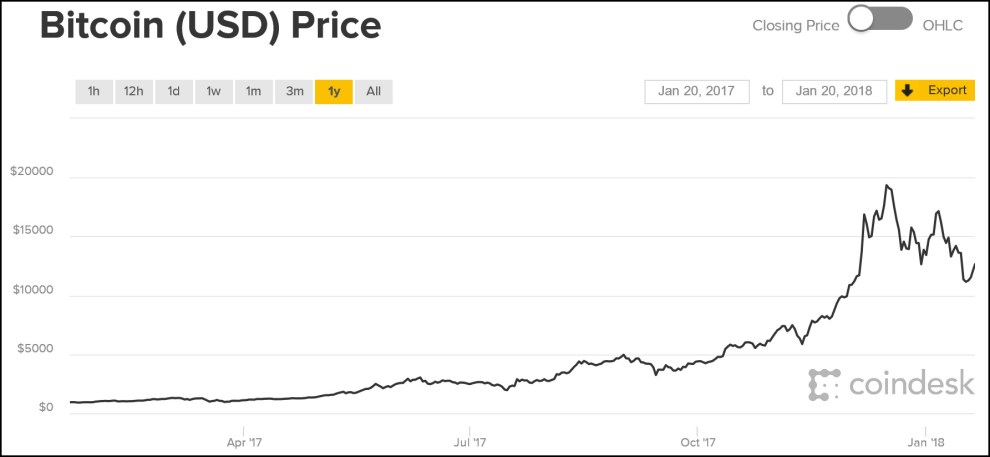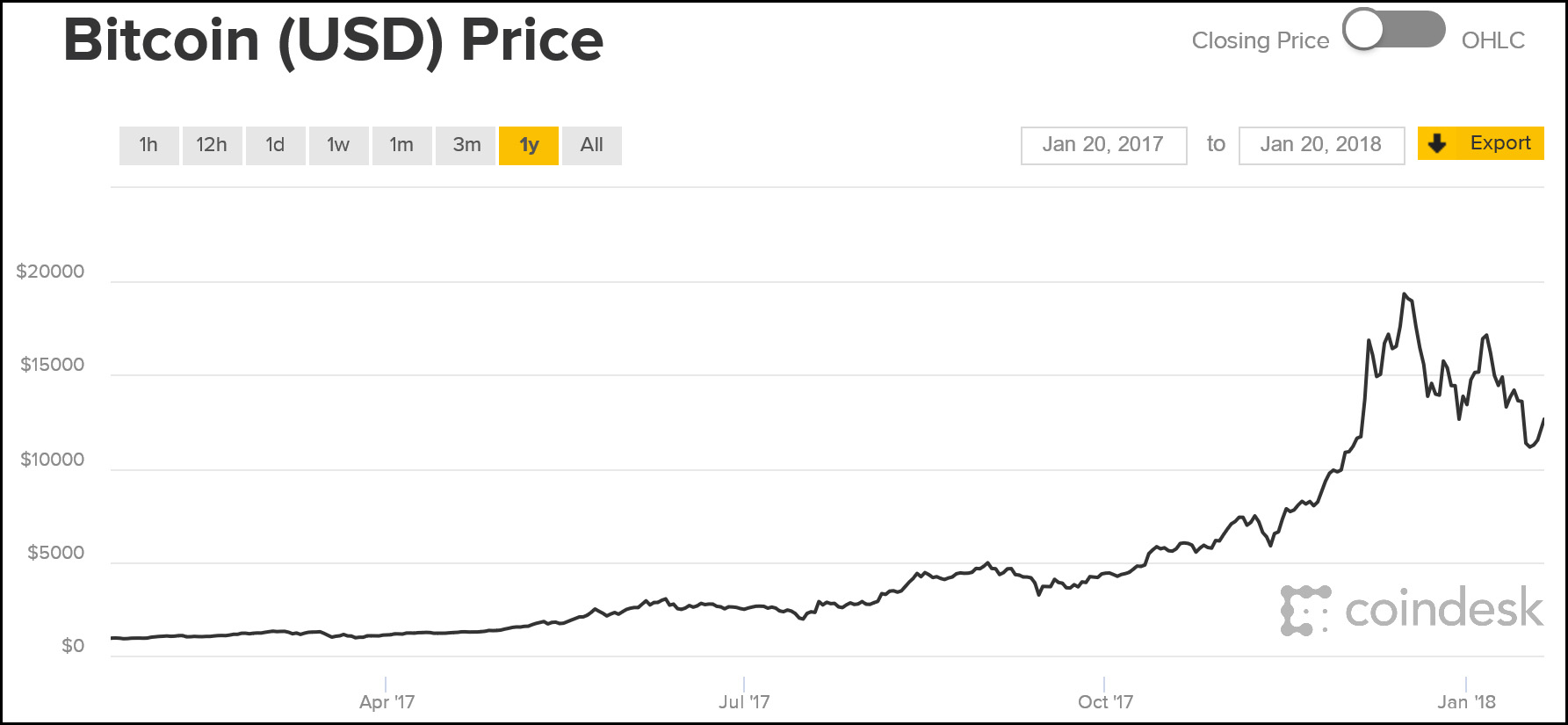
Rowan Walrath wrote yesterday about bitcoin. She talked to Pai-Ling Yin, a professor at USC:
While cryptocurrency investment has a “bubble element,” she says, that doesn’t mean blockchain has no value. To put it simply, blockchain is an anonymized, decentralized system for managing data and keeping accounts, and while it’s most commonly associated with cryptocurrencies, it has potentially far-reaching implications for the future direction of the internet….Does this mean investors are right to value bitcoin at $20,000? Not necessarily, Yin says. “It’s high for now. Let’s put it that way,” she says. “There could be a time where the valuation we see now does correspond to the value of what the technology is.”
I should admit up front that I obviously don’t “get” bitcoin, but I really don’t get Yin’s comment. In what way should bitcoin reflect the value of the technology behind it? Owning bitcoin doesn’t give me a patent on blockchain technology, after all. There’s tremendous amounts of technology that go into making a penny too, but it’s still only worth one cent.
Anyway, blockchain. It’s an interesting technology. As Walrath says, it’s decentralized. That means it’s a way of conducting reliable transactions without having anyone in the middle to verify them. This has some potentially interesting uses, but only if you care deeply about not having anyone in the middle. The Visa network, for example, can process billions of transactions quickly and accurately, as all of us know since we use our credit and debit cards every day with no hassle. Transaction processing per se is not a problem that needs solving. However, all the transactions are managed by Visa. If you don’t want Visa to know what you’re doing, this is a problem.
It’s not clear to me just how widespread this desire is. Drug dealers and money launderers, obviously, like to keep a low profile. Ditto for organizations that are banned from using the banking system. And of course, anyone who’s just generally paranoid. But how big a market is that? It doesn’t seem all that big to me. But then again, I don’t get it, do I?
Plus there’s the issue of just how blockchain manages this reliable, decentralized verification of transactions. The answer in the case of bitcoin is that thousands of computers around the world are engaged in bitcoin mining, in the hopes of getting rich. In the course of that mining, they maintain the blockchain. That’s all fine, but how does blockchain work when there aren’t thousands of people around the globe with a profit motive to maintain the blockchain? Beats me.
I dunno. Blockchain is an interesting technology, but I continue to have a hard time seeing it as revolutionary. I guess we’ll just have to wait to see.
















